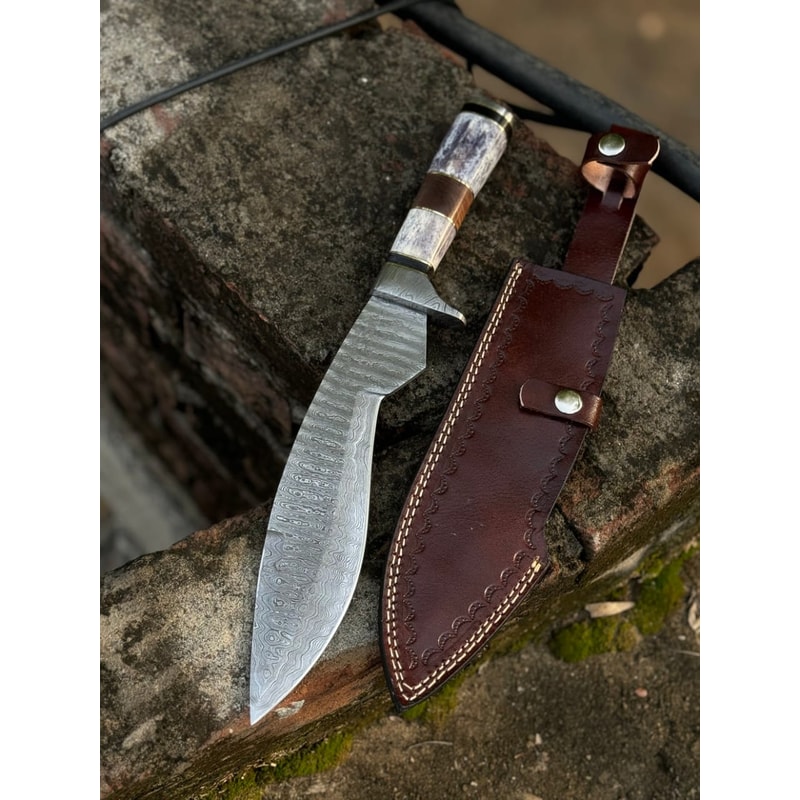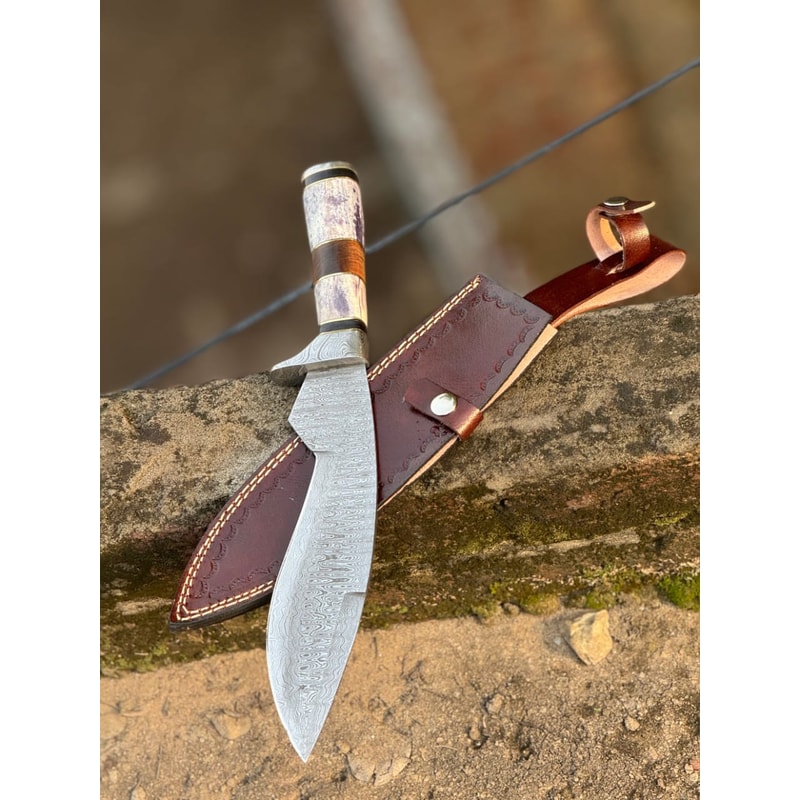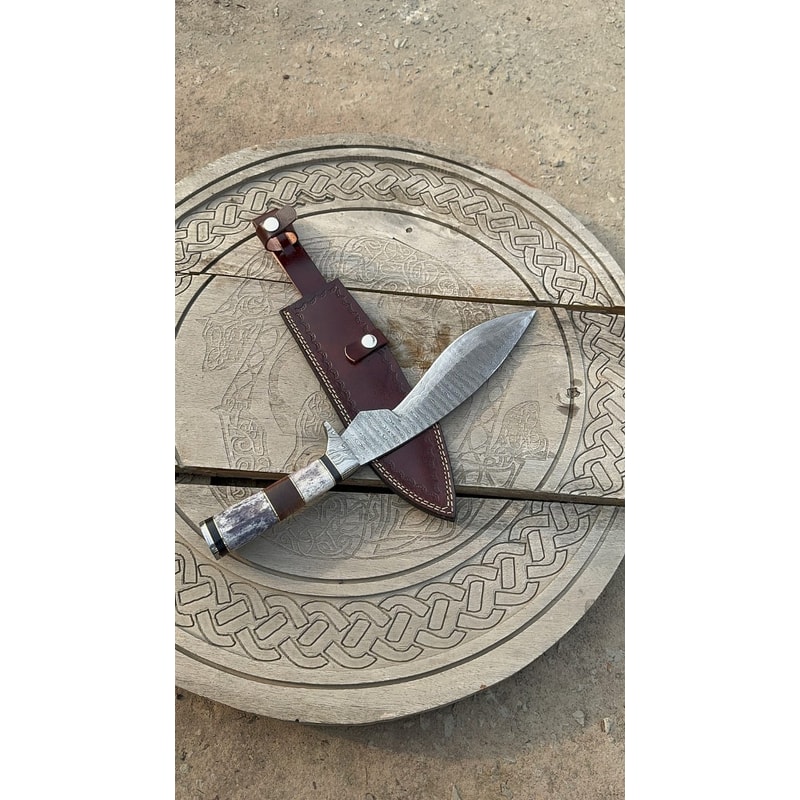Handmade Damascus Kukri Knife with Leather Sheath
Shipping Type:
Quantity
A handmade Damascus kukri knife is a unique and intricately crafted blade, known for its distinctive curved shape and historical significance, especially in Nepal and surrounding regions. Here are some details about such a knife:
### Blade:
1. **Material**: The blade is made of Damascus steel, renowned for its strength, durability, and distinctive wavy patterns created by folding multiple layers of steel together.
2. **Pattern**: Each blade features unique patterns, often resembling flowing water, due to the forging process.
3. **Shape**: The kukri blade has a distinctive inward curve, making it excellent for chopping and slicing.
4. **Length**: Kukri blades typically range from 10 to 15 inches, though they can be longer or shorter based on design.
### Handle:
1. **Material**: Handles are often made from wood, bone, horn, or even synthetic materials for durability.
2. **Design**: The handle is typically ergonomic, designed to provide a firm grip during use. Traditional kukri handles may also feature carvings or inlays for added aesthetic appeal.
### Guard and Pommel:
1. **Guard**: Some kukris feature a small guard to protect the hand, though many traditional designs lack this feature.
2. **Pommel**: The pommel might be simple or elaborately decorated, sometimes featuring a metal cap for balance and durability.
### Sheath:
1. **Material**: The sheath is usually made from leather, wood, or metal, sometimes wrapped with fabric or decorated with carvings.
2. **Design**: A good sheath will secure the blade firmly and may have additional pockets for smaller utility knives, called "karda" (for small cutting tasks) and "chakmak" (for sharpening).
### Craftsmanship:
1. **Handmade**: Each knife is handmade by skilled artisans, making every piece unique.
2. **Forging Process**: The Damascus steel is created through a process of repeated folding, heating, and hammering, which not only creates the unique patterns but also enhances the blade's strength and flexibility.
3. **Finishing**: The blade is carefully ground, polished, and sharpened to achieve a keen edge, while the handle and other components are assembled with precision.
### Usage:
1. **Utility**: The kukri is a versatile tool, used for chopping wood, clearing brush, and as a general-purpose utility knife.
2. **Cultural Significance**: Traditionally, the kukri is a symbol of bravery and valor, particularly in Nepal, where it is associated with the Gurkhas, renowned soldiers known for their bravery and skill in combat.
A handmade Damascus kukri knife is not only a functional tool but also a work of art, reflecting the rich cultural heritage and skilled craftsmanship of its makers.









